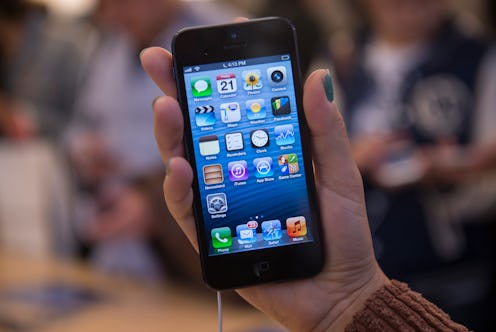News
Apple Got Slapped With A HUGE Lawsuit After They Admitted To Slowing Down Older iPhones

A Los Angeles man has filed a class-action lawsuit against Apple for intentionally slowing down older iPhones, multiple news outlets reported Thursday. The company confirmed Wednesday that iPhones gradually throttle their own speed over time, in what it said is an attempt to preserve battery life.
But the plaintiffs in the lawsuit, Stefan Bogdanovich and Dakota Speas, note that this practice isn't disclosed to iPhone customers when they sign their contracts with Apple. Furthermore, they allege that the throttling of iPhones results in customers buying new phones before they actually need them.
It had long been rumored that Apple purposefully caused its phones to slow down over time. Only on Wednesday, however, did the company admit that was the case. "Our goal is to deliver the best experience for customers, which includes overall performance and prolonging the life of their devices," Apple said in a statement to TechCrunch. "Lithium-ion batteries become less capable of supplying peak current demands when in cold conditions, have a low battery charge or as they age over time, which can result in the device unexpectedly shutting down to protect its electronic components."
The company went on to say that the iPhone 6 contains a feature that slows the phone down "only when needed to prevent the device from unexpectedly shutting down" due to a depleted battery.
Bogdanovich isn't the only one taking Apple to court over the iPhone slowdown. Five people spread across Illinois, North Carolina, Ohio, and Indiana filed a separate class-action suit against Apple in a Chicago court over the same issue. Additionally, an attorney who's made a name for himself suing tech companies told Crain's that he's weighing a lawsuit against Apple as well.
Apple maintains that its only goal in slowing down iPhones is to preserve battery power. The maximum charge of the lithium-ion batteries in iPhones decreases over time, and tasks that require high CPU use deplete the charge even quicker. Slowing down the phones' CPUs (and, by extension, speed) during those moments prevents the battery from dying completely, the company maintains.
In essence, it's a trade-off between speed and battery life. But until Wednesday, Apple hadn't told iPhone customers that their phones were making this trade-off, and that's significant: Critics argue that countless customers whose phones slowed down for this reason were under the impression that they had no choice but to purchase a new iPhone — when in fact, for a mere $79, they could have simply had the battery replaced. Apple had the option of informing its customers when their phone's batteries were getting low on charge; in fact, the company's laptops do exactly that.
"[Apple]'s wrongful actions directly and proximately caused the interference and loss of value to [customers]’ iPhones causing them to suffer, and continue to suffer, economic damages and other harm for which they are entitled to compensation," reads the Los Angeles lawsuit.
The suit notes that Apple's iPhone throttling effectively caused those phones to decrease in value; this, Bogdanovich and Speas argue, inflicted economic damages on customers who sold those phones for a lower value than they could have had the phones not been intentionally slowed down. Additionally, Bogdanovich and Speas maintain that the price customers paid for their iPhones upfront was artificially inflated, as they would have shelled out less had they known the phones would be slowed down by the company over time.
Bogdanovich and Speas are requesting class-action status for the lawsuit, which would make everybody in the U.S. who purchased an iPhone model prior to the iPhone 8 would be party to the suit. If the courts ultimately rule that Apple acted improperly, all of those customers would be eligible for any compensation the courts dole out.